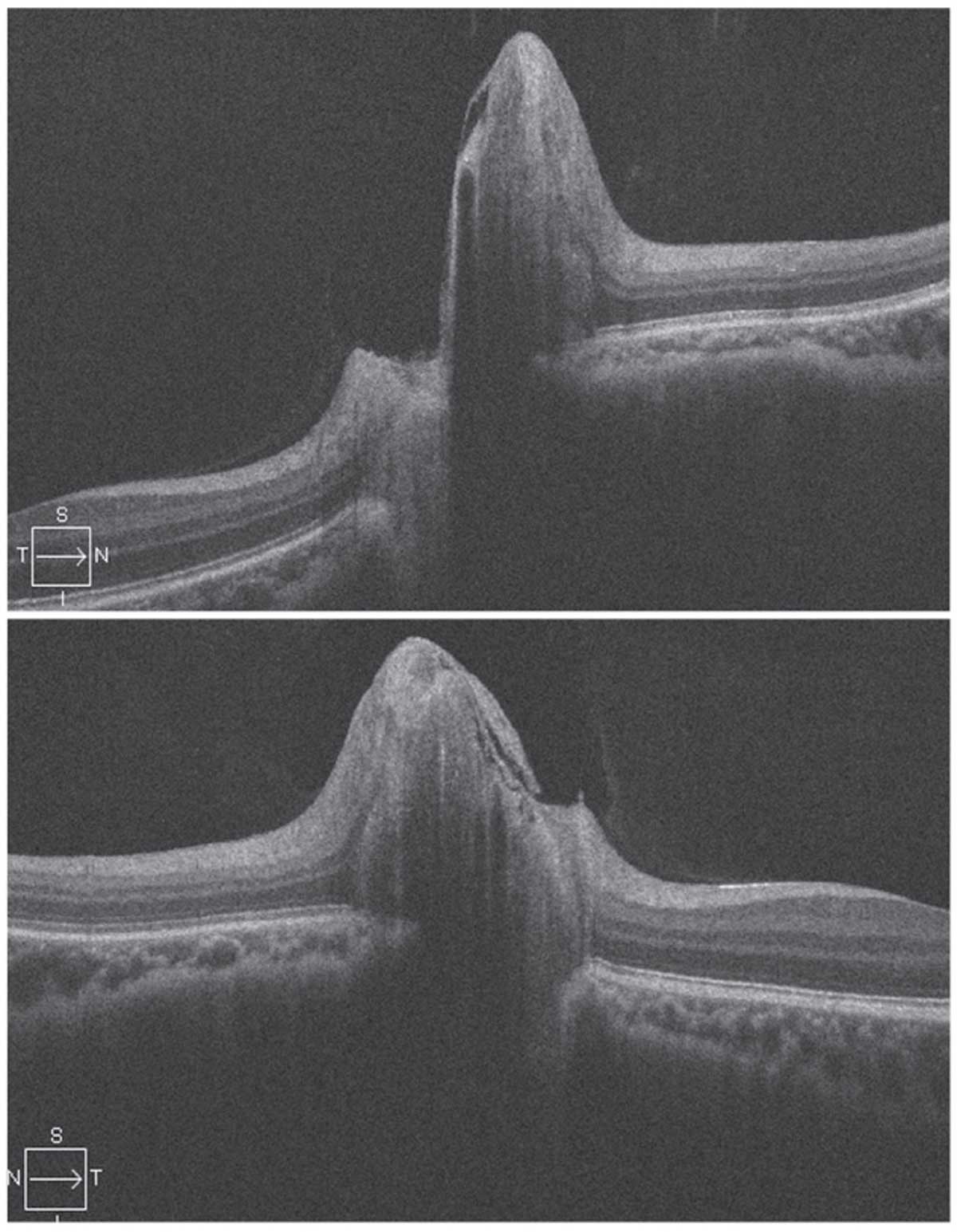 |
Patients recovering from eating disorders were found to have an increased risk of IIH. Click image to enlarge. |
A single case of idiopathic intracranial hypertension (IIH) in an underweight patient following intentional weight gain therapy was recently reported in the Journal of Neuro-Ophthalmology. Though IIH is currently thought to be more prevalent among young, obese women with rapid weight gain as a precipitating factor, the study authors suggested clinicians should “consider IIH as a possible complication of rapid weight gain in all patients, even those who are underweight.”
The case involved a 19-year-old woman with anorexia nervosa who underwent intentional weight gain as part of the treatment regimen for her eating disorder. Over the course of a few months, she gained 35 pounds and her BMI increased to a normal value. After undergoing ocular examination, slit lamp imaging, dilated fundus exam, noncontrast computed tomography and MRI of the brain and lumbar puncture, she met the modified Dandy criteria for IIH and was diagnosed with the disease. She remained clinically stable on acetazolamide, with improved visual acuity and visual fields at six months.
Little is known about the association between IIH, low or subnormal BMI and intentional rapid weight gain, the study authors wrote in their paper. They suggested normalization of vitamin A levels and/or leptin after chronic malnutrition may trigger increased intracranial pressure.
“Like refeeding syndromes in intentional restrictive eating disorders or in unintentional starvation syndromes, rapid weight gain can produce metabolic derangements,” the authors wrote in their report. They concluded that these potential mechanisms of action are important considerations when managing patients with eating disorders.
Zepletal A, Raviskanthan SB, Mortensen PW, et al. Idiopathic intracranial hypertension after avoidant/restrictive eating disorder. J Neuroophthalmol. January 19, 2022. [Epub ahead of print]. |

